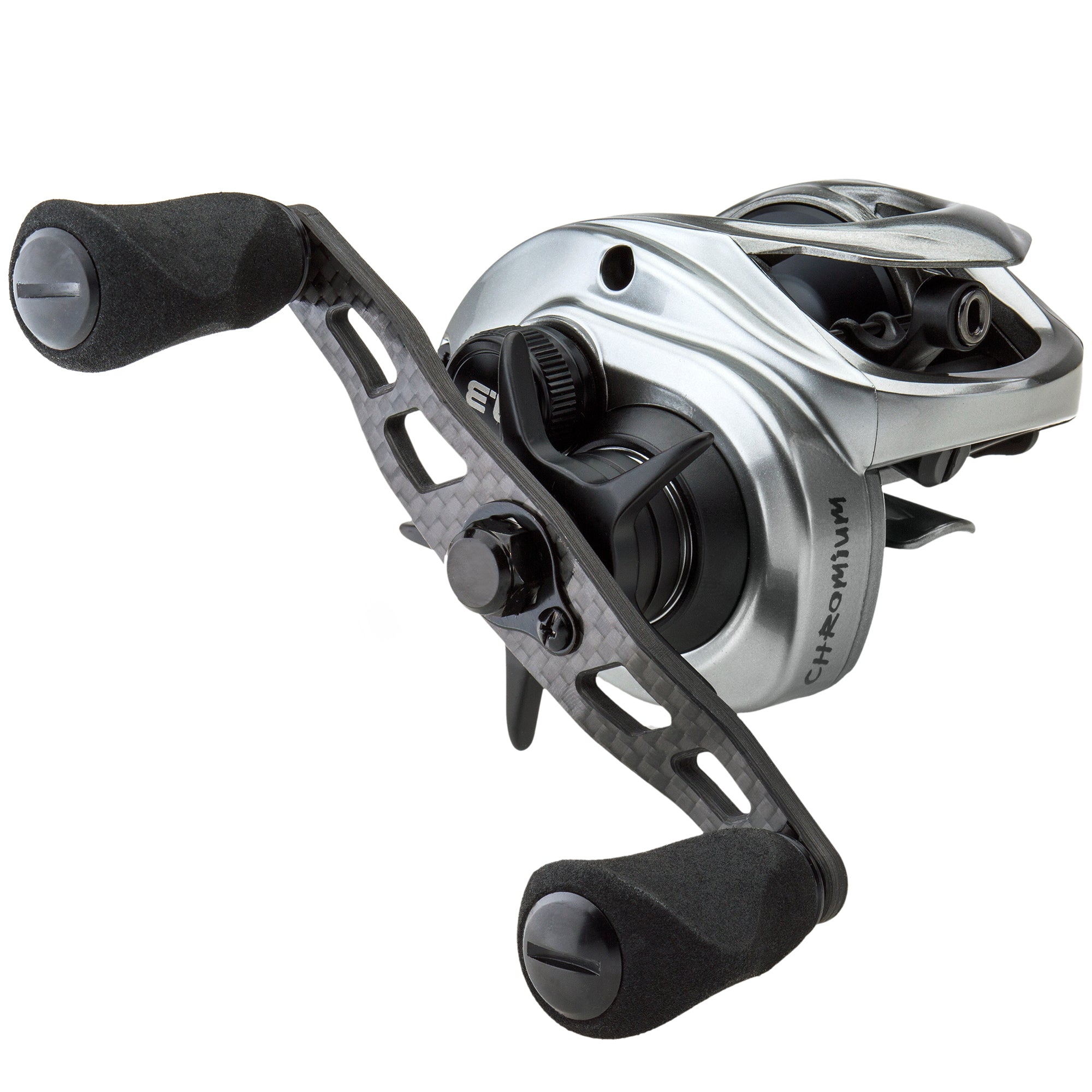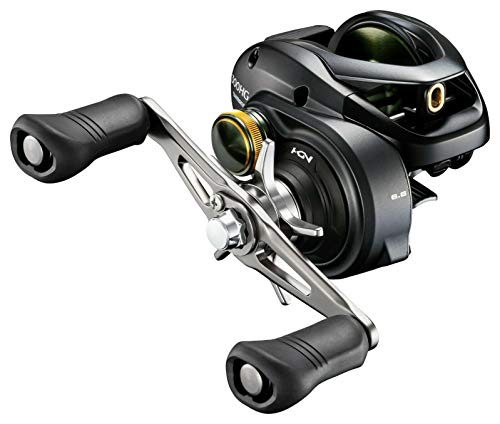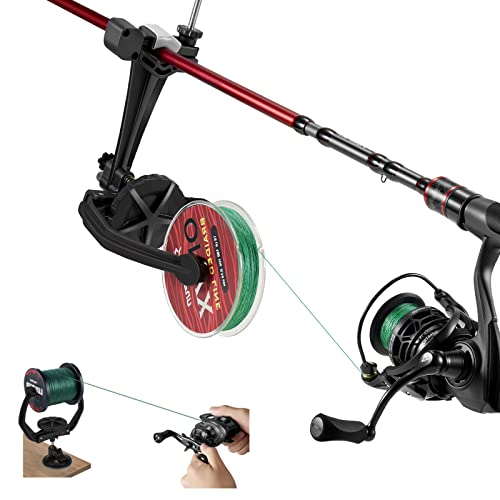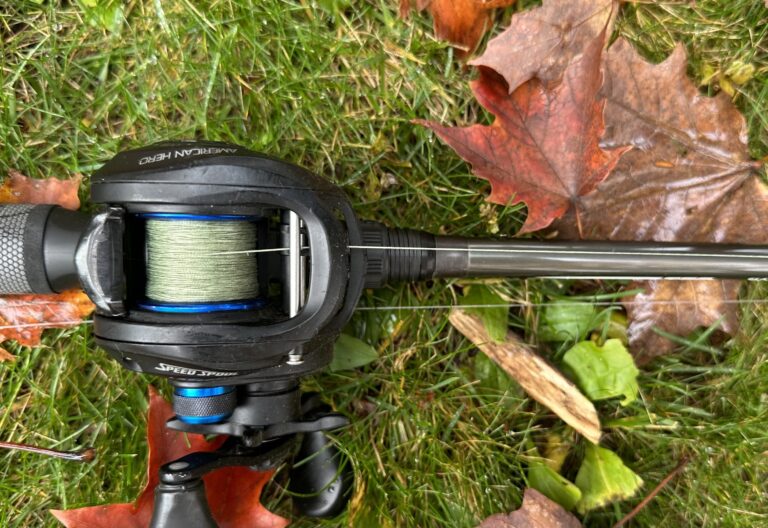Baitcasters cast further than other fishing reels due to their ability to control line speed and accuracy. As a result, anglers can achieve longer casting distances, especially when using heavier lures or in windy conditions.
Additionally, baitcasters have a more precise casting control system, allowing anglers to adjust the spool tension and braking system for better distance and control. These features make baitcasters a popular choice among experienced anglers seeking to cast further and target fish in deeper waters.
Whether you’re a professional angler or a beginner, understanding the advantages of using a baitcaster can greatly enhance your fishing experience and increase your chances of catching that trophy fish. So, let’s dive into the world of baitcasters and explore their casting capabilities in more detail.

Credit: kistlerrods.com
Understanding The Mechanics Of Baitcasters
How Baitcasters Work: A Detailed Overview
Baitcasters are a popular choice among anglers due to their superior casting accuracy and control. Understanding the mechanics of these reels can greatly improve your fishing experience. Let’s delve into the workings of baitcasters and how they can help you cast further.
Key Components Of A Baitcaster Reel
Baitcasters are equipped with specific components that contribute to their unique functioning. Here are the key components you need to know:
- Spool: The spool is the cylindrical part of the reel that holds the fishing line. It rotates during casting and retrieving.
- Gear ratio: The gear ratio determines the number of times the spool rotates with each full rotation of the handle. It affects both the speed and power of the retrieve.
- Drag system: The drag system controls the amount of resistance applied to the spool when a fish pulls the line.
- Handle: The handle is used to retrieve the line after casting. It provides the necessary grip for reeling in your catch.
- Brake system: Baitcasters come with different brake systems, such as centrifugal brakes or magnetic brakes, which help control the speed and prevent backlash during casting.
The Role Of Spool Tension And Brake Systems
Now that we’ve covered the essential components of a baitcaster, let’s focus on the critical role that spool tension and brake systems play in achieving longer casts:
- Spool tension: Adjusting the spool tension knob allows you to control the rotation of the spool. Properly setting the spool tension ensures that the line comes off the spool smoothly during the cast. Too much tension can limit your distance, while too little tension can result in backlash.
- Brake systems: Baitcasters employ brake systems to prevent the spool from spinning too fast during the cast, which can lead to backlash. Centrifugal brakes use internal brake blocks, whereas magnetic brakes use magnets to control rotational speed. Adjusting the brakes according to your casting style and environmental conditions can promote longer and more accurate casts.
By understanding and utilizing the spool tension and brake systems effectively, you can increase your casting distance with a baitcaster reel. Experimenting and finding the ideal settings that suit your skill level and fishing conditions will significantly enhance your overall casting performance.
Remember, practice makes perfect with baitcasters. Take the time to master the mechanics of these reels, and before you know it, you’ll be casting further and hitting your target with precision. Enjoy pushing your casting limits and reaping the rewards on your fishing adventures!
Factors Affecting Casting Distance With Baitcasters
Baitcasters are a popular choice among anglers, known for their accuracy and control. But can they cast further compared to other types of fishing reels? In this section, we will delve into the factors that affect casting distance with baitcasters.
Understanding these factors can help you optimize your casting performance and push the limits of your baitcaster reel.
Understanding Gear Ratios And Their Impact On Casting Distance
- The gear ratio of a baitcaster refers to the speed at which the spool rotates in relation to the handle’s turns. Different gear ratios offer varying benefits when it comes to casting distance.
- Higher gear ratios, such as 7: 1 or 8:1, provide more turns of the spool per handle turn, resulting in faster line retrieval. However, this increased speed sacrifices torque and power, reducing casting distance.
- Lower gear ratios, like 5: 1 or 6:1, offer higher torque and more power, allowing for longer casts. These ratios are especially beneficial when using heavier lures or when dealing with challenging fishing conditions.
The Importance Of Line Capacity For Longer Casts
- Line capacity plays a crucial role in a baitcaster’s ability to cast further. It refers to the amount of fishing line that can be spooled onto the reel.
- Fishing lines with larger diameters take up more space, reducing the effective line capacity and limiting casting distance. Smaller diameter lines, on the other hand, provide greater capacity and can be cast further.
- When choosing a baitcaster reel, consider its line capacity and match it with the type of fishing line you intend to use. Opting for the appropriate line diameter can maximize your casting distance.
Weight And Balance: How They Impact Casting Performance
- The weight and balance of a baitcaster can significantly affect casting performance.
- A well-balanced baitcaster reel distributes the weight evenly, providing better control during the casting motion. It allows for smoother and more accurate casts, leading to increased distance.
- Lighter baitcaster reels are generally easier to handle and require less effort to cast, contributing to improved casting distance.
- When selecting a baitcaster, consider its weight and how it feels in your hands. Find a reel with a balanced and comfortable design to enhance your casting performance.
By understanding the gear ratios, line capacity, weight, and balance of baitcaster reels, you can make informed choices to optimize your casting distance. Experimenting with different combinations and finding the right setup that suits your fishing style and conditions can greatly extend the reach of your baitcaster casts.
So, get out there and start pushing the limits of your casting abilities with this versatile fishing reel!
Techniques And Tips To Maximize Casting Distance With Baitcasters
Baitcasters are popular among anglers for their accuracy and control, but did you know that they can also cast further than other types of fishing reels? By employing the right techniques and using the appropriate lures and line, you can maximize your casting distance with baitcasters.
In this section, we will explore some effective tips and tricks to help you cast even farther.
Proper Thumb Control For Increased Distance
Maintaining proper thumb control is crucial for achieving maximum casting distance with a baitcaster reel. Here are some key points to keep in mind:
- Start by adjusting the spool tension knob: Turn the knob until there is just enough resistance to prevent the lure from dropping when the reel is in free spool mode.
- Utilize the ‘feather touch’ technique: Apply a light thumb pressure on the spool during the cast to prevent backlash while allowing the line to release smoothly.
- Practice the ‘pendulum cast’: This technique involves using the weight of the lure to generate momentum and increase casting distance. Simply release the thumb pressure at the right moment to achieve maximum distance.
Utilizing Proper Casting Techniques
In addition to thumb control, employing the right casting techniques plays a significant role in maximizing your casting distance. Consider the following tips:
- Master the overhead cast: This classic casting technique involves bringing the rod back over your shoulder and propelling it forward in a smooth motion. By utilizing the correct rod movement, you can gain more distance in your cast.
- Utilize the sidearm cast: This casting method involves keeping your elbow close to your body and casting horizontally. It is especially effective when casting under low hanging branches or obstacles.
- Pay attention to your rod angle: By keeping your rod at an optimal angle during the cast, you can achieve a longer and more accurate cast. Experiment with different angles to find what works best for you.
Selecting The Right Lures And Line For Maximum Distance
The choice of lures and line can also greatly impact your casting distance. Consider these factors:
- Opt for lightweight lures: Lighter lures tend to create less drag and can result in longer casts. Experiment with different lure weights to find the optimal balance between distance and your target species.
- Choose low-friction line: Braided or fluorocarbon lines have less resistance in the water compared to monofilament lines, allowing for increased casting distance.
- Spool the right amount of line: Overfilling or underfilling your spool can negatively affect your casting distance. Follow the reel manufacturer’s recommendations for the proper line capacity.
Remember, achieving maximum casting distance with a baitcaster is a skill that requires practice and experimentation. By mastering proper thumb control, utilizing effective casting techniques, and selecting the right lures and line, you can significantly increase your casting distance and improve your overall fishing experience.
Conclusion
It is clear that baitcasters can allow anglers to cast further than other types of fishing reels. The design and mechanics of a baitcaster enable it to generate more power and accuracy, resulting in longer casting distances. The spool control and braking systems of baitcasters also contribute to improved control and precision, allowing anglers to cast with greater ease and distance.
However, it is important to note that casting distance is influenced by various factors such as the angler’s technique, the type of fishing line used, and the weight of the lure. It is recommended for anglers to practice and experiment with different settings and techniques to find what works best for them.
Ultimately, the ability to cast further with a baitcaster can enhance an angler’s experience, expand their fishing opportunities, and increase the chances of successfully hooking that elusive trophy fish. So, if you’re looking to cast further, a baitcaster might just be the reel for you.



